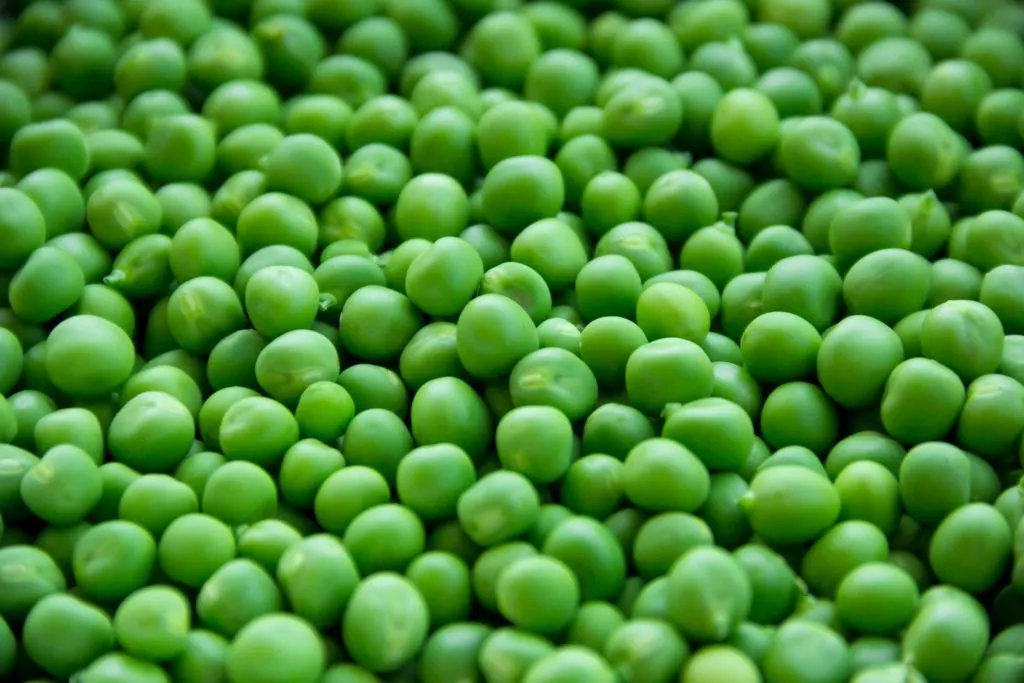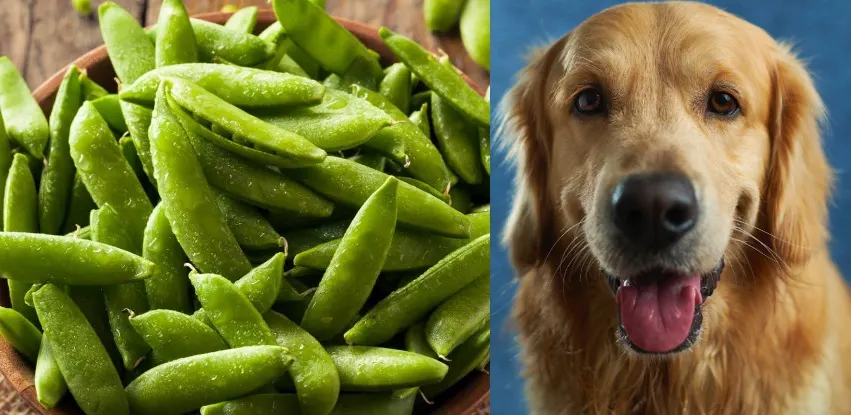Not all fruits and vegetables are safe for canines to consume. For example fruits like plums should never be fed to dogs. However, there are also safe options like apples and blueberries for fruits, and bell peppers or brussels sprouts for vegetables. But can dogs eat sugar snap peas?
It’s always important to do good research before giving your dog any human foods, no matter what it is. You never know what can cause your dog harm.
However, green peas, including sugar snap peas, snow peas, garden, and English peas, are completely safe for your pooch. In fact, you’ll find that peas are used in making dog food too!
In this article, we’re going to explain what makes peas healthy and why you might want to ass them into your canine’s diet. Basically, we’re going to answer can dogs have snap peas.
Besides peas, there are many other fruits, vegetables, and human foods in general that are safe for dogs. However, the list of harmful foods is pretty long too. That’s why it’s important to educate yourself on the topic of food.
We have several articles that are a good start for doing exactly that:
- What Vegetables Can Dogs Eat?
- What fruits can dogs eat and which are toxic?
- Which Food Is Good Or Bad For Dogs?
- Five human foods you can give your dog without any guilt!
- Five human foods that could kill your beloved dog!
- Can Dogs Eat Spicy Food?
Can dogs eat sugar snap peas – Everything to know
Before we dive into all the benefits peas have to them, we want to stress something. Just because a certain vegetable is healthy and safe for canines, doesn’t mean that they need to consume that vegetable. Your dog doesn’t need vegetables in its diet. What they do need is a diet that’s high in protein.
With that being said, let’s see what makes sugar snap peas healthy.
Benefits of peas
Despite being tiny in size, peas are actually full of vitamins and minerals! Peas are full of vitamin A, K, and different B vitamins. Besides this, they’re packed with minerals like iron, zinc, potassium, and magnesium.
Another plus is that peas are quite rich in protein and very high in fiber. We also need to mention that peas contain lutein which is an anti-oxidant that is amazing for skin, heart, and eye health!

What’s also important is to say that peas contain the carotenoids lutein and zeaxanthin. If you don’t know what these are, they are basically nutrients that help protect the eyes from chronic diseases. For example from cataracts and age-related macular degeneration.
It’s important that dog food is anti-inflammatory which peas are! Peas contain many anti-inflammatory nutrients which help with lowering the risk of inflammatory conditions like diabetes, heart disease, and arthritis.
The vitamins and nutrients found in peas that help reduce inflammation are:
- Vitamin A
- Vitamin B
- Coumestrol
- Ferulic
- Caffeic acid
- Catechin
- Epicatechin
- Pisumsaponins I and II
- Pisomosides A and B
How to feed peas to dogs
Even though sugar snap peas are safe for dogs, you still shouldn’t go overboard with feeding them to your dog. Especially if your dog has kidney issues. This is because peas contain purines that can further aggravate the kidneys.
Besides this, please only feed your dog fresh peas, never canned peas. This is because canned peas contain too much sodium which can be harmful to your canine.
Too much salt can cause severe health problems for your dogs. For example, it can cause a condition called hypernatremia. In the case of hypernatremia, your dog will lose a tremendous amount of water in its body. This will then lead to dehydration and urination problems!
With that being said there are several ways in which you can incorporate peas into your dog’s diet. You can get creative and see which way your dog prefers the most.
For example, you could cook the peas and mix them in with your dog’s kibble! Serve them with a good portion of protein. You could also give your dog a few fresh sugar snap peas as a delicious snack.
Conclusion
In conclusion, the answer to the question can dogs eat sugar snap peas is definitely yes! This vegetable is safe for your dog to consume. It’s full of healthy nutrients like different vitamins, iron, and fiber.
However, please always check with your veterinarian before introducing any new food to your canine, especially if your dog has any health issues. In addition to that, always make sure you introduce new foods one by one.
Your veterinarian will have the best advice on what you should do and whether your dog can eat a certain food or not. While some food is generally safe, dogs can develop allergies to different food as well.

